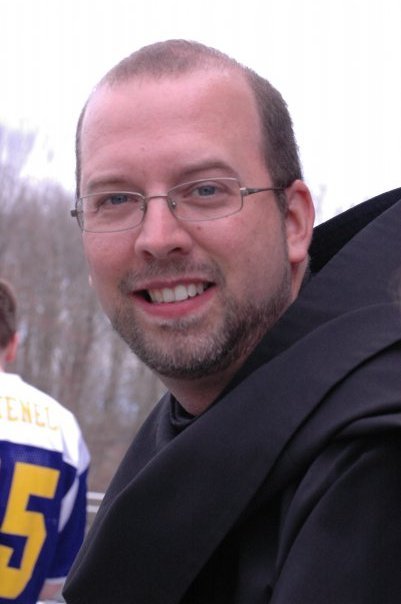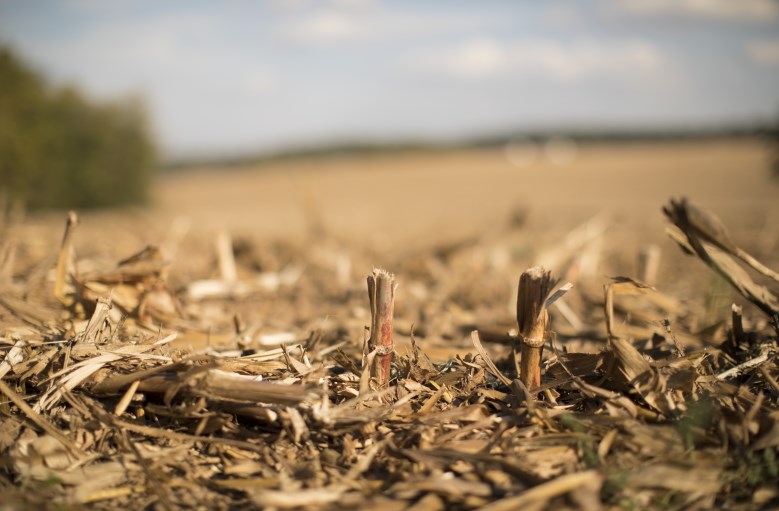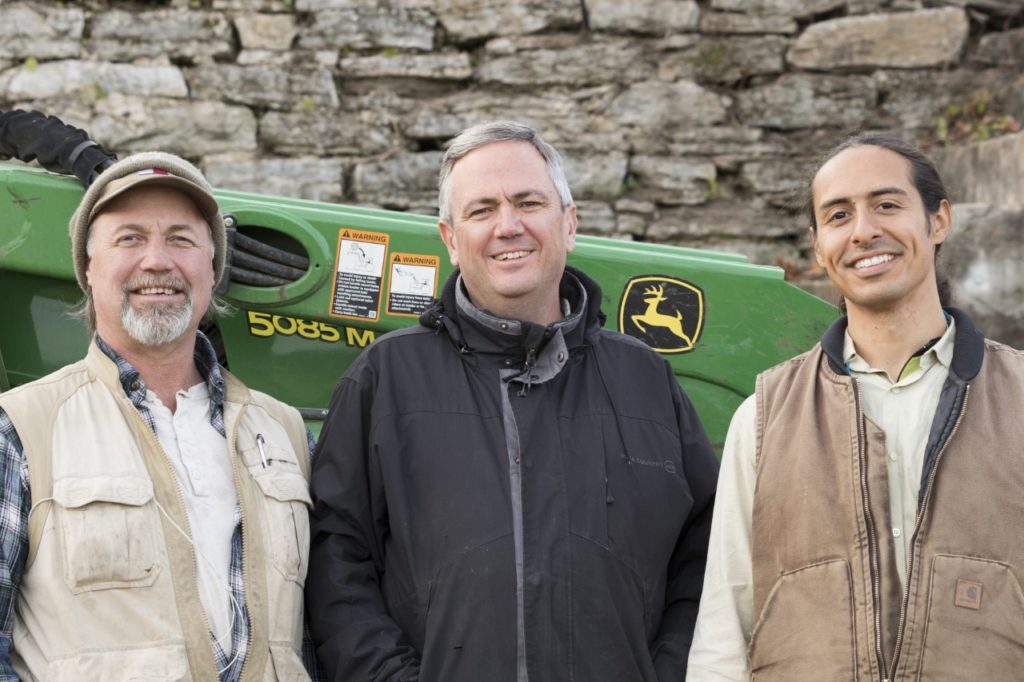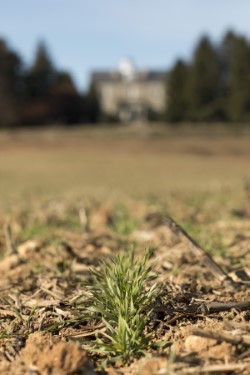 Adapted from a new series, “Farm Focus” presented by Our Lady of the Angels Province friar, Fr. Michael Lasky, OFM Conv., who serves as Chairman of JPIC (Justice, Peace and Integrity of Creation Commission) for our province, in addition to serving as Vice President of the FAN (Franciscan Action Network) Board:
Adapted from a new series, “Farm Focus” presented by Our Lady of the Angels Province friar, Fr. Michael Lasky, OFM Conv., who serves as Chairman of JPIC (Justice, Peace and Integrity of Creation Commission) for our province, in addition to serving as Vice President of the FAN (Franciscan Action Network) Board:
 “It’s like walking on cement!” was the comment made to me by one of the farmers, as we walked our Ellicott City fields, by to our barn. For years we friars would look out of our car windows, while driving on Folly Quarter Road and see the corn or neatly lined rows of soy (adjacent to our province’s Ellicott City, MD complex ~ home of our Shrine of St. Anthony, Carrollton Hall Historic Site, Companions of St. Anthony and Provincial House ministries). We might have even thought to ourselves how nicely the rolling hills of farmland looked, all the while unaware that the type of farming and crops that were being grown were harmful to the environment. The additional use of pesticides has only complicated the dynamic.
“It’s like walking on cement!” was the comment made to me by one of the farmers, as we walked our Ellicott City fields, by to our barn. For years we friars would look out of our car windows, while driving on Folly Quarter Road and see the corn or neatly lined rows of soy (adjacent to our province’s Ellicott City, MD complex ~ home of our Shrine of St. Anthony, Carrollton Hall Historic Site, Companions of St. Anthony and Provincial House ministries). We might have even thought to ourselves how nicely the rolling hills of farmland looked, all the while unaware that the type of farming and crops that were being grown were harmful to the environment. The additional use of pesticides has only complicated the dynamic.
Leaning down with a stone, I scratched as deep as possible into the dirt, about 6 inches, and the resulting smell was … nothing. The soil smelled like nothing. It was exhausted.
A similar thing happened on our land during the time of Charles Carroll of Carrollton (1737 – 1832), one of four Marylanders to sign the Declaration of Independence and the only Roman Catholic. He owned vast agricultural estates and our property is a very small portion of one of his estates which he gifted to his favorite granddaughter, Emily.
In 1772, the Ellicotts – a Quaker family – settled in what is now downtown Ellicott City, building mills along the river. Having sampled the ground in the area and listening to local farmers, they realized that the soil was exhausted, and recommended a switch from farming tobacco to farming wheat. With the support of Charles Carroll of Carrollton, one of the first to make the change, the land and local economy were saved.
History, in a manner of speaking, is repeating itself as we friars, the caretakers of this Folly Quarter parcel of the old Carrollton estate, are changing our farming ways by partnering with our nearby neighbors at Mary’s Land Farm. In the months ahead, our province JPIC Updates will switch from the usual “Friar Focus” articles to a “Farm Focus” series, chronicling this new farm-partnership and the ways we hope we will help to restore the land.

Mike Haigwood, Tom Cunningham & Christian Melendez
Just a little over a year ago Howard Magazine did a feature article about Mary’s Land Farm, located on another part of the old Carroll estate, running along Sheppard Lane (Ellicott City, MD).
It is owned by tech entrepreneur Tom Cunningham, his wife Rosy, and their children; Luis, Maria, Rosy, Lupe, Thomas and Rita. Different from many farmers, even from some others who farm organically, Cunningham has transformed his land into, “an orchestra of water, soils, plants, grasses, and animals to keep each in balance.” He, his family and his staff farmers, Mike & Barb Haigwood and Christian Melendez, have brought about an ecosystem that is a sustainable incarnation of farming, in the spirit of Laudato Si.

Farmer Mike Haigwood has already planted our first cover crop of wheat-rye, which is helping to take the harmful toxins out of the soil, while facilitating the return of the nutrients needed for the soil restoration process. These new farmer partners of our friars are helping us to sing St. Francis’ praises of the Lord for our sister, Mother Earth.
We look forward to eventually using our own “Little Portion” of the land to feed those served at the Franciscan Center in the northern area of Baltimore City (MD). The rest of our farm land will be used to extend the ecological footprint of Mary’s Land Farm.
